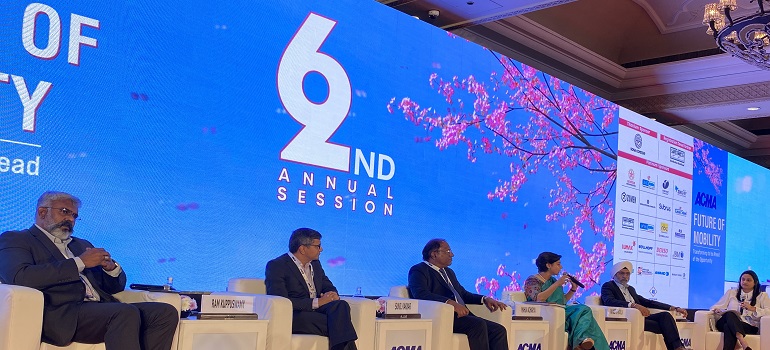Convergence Energy Services Limited (CESL) in collaboration with The World Bank and World Resources Institute India (WRI India), today conducted a carbon financing workshop under the Forum for Decarbonising Transport (a part of the NDC- Transport Initiative for Asia).
Held at Le Meridien, New Delhi, the workshop was organized as part of the run up to INSIGHT 2022 – a two-day international conference for financing electrification of public transport.
The event was attended by national and international experts from the public mobility and clean energy sectors as well as representatives from different financing agencies. Key points of the discussion included carbon trading and developing frameworks to monetize carbon assets once the National E-Bus Programme is fully commissioned.
The workshop also led to the proposal of a roadmap to increase private sector participation, reduce the cost of public intracity transport and achieve the net-zero targets announced by Hon’ble Prime Minister Sh. Narendra Modi at COP26 in Glasgow.
Leading the agenda of transition to complete electric mobility in the intra-city segment, CESL has laid down a cost-effective plan to achieve this milestone well before the deadlines set previously. The workshop also played a significant role in designing the national programme for 50,000 electric buses across the country and providing financially viable options for State Transport Undertakings (STUs), policymakers and other stakeholders.
Mahua Acharya, MD & CEO, Convergence Energy Services Limited CESL said, “Although we are seeing citizens accept electric vehicles for personal transport, the usage of electric vehicles in the public transport segment also needs to be promoted. Electric buses are already plying in some cities which is a positive step, but they currently contribute to a small segment of the entire fleet. Collectively, the entire fleet needs to be electric to achieve net-zero targets. Awareness about carbon trading also needs to be created, and STUs have to be made aware about the financial benefits of carbon credits they earn from this transition. If suitably planned, the national e-bus programme can generate enough revenues for STUs to fully finance their transition costs.”
Madhav Pai, Executive Director, WRI India Ross Center said, “While we have set ambitious targets at city, state and central levels to transition to electric mobility, financing this change is the key challenge. Through this workshop, we have attempted to improve our understanding of carbon markets which will help us explore effective strategies to fund and catalyze our ongoing transition to electric mobility.
Pawan Mulukutla, Director-Integrated Transport, Electric Mobility and Hydrogen, WRI India, added, “Globally, the transport sector contributes nearly 25% of fossil-fuel based emissions. However, transport sector projects constitute only a minute share of issued carbon credits because the unit level emission reductions in the sector are small and difficult to capture. India’s e-mobility transition offers a tremendous opportunity to develop the carbon market in the country and this can only happen if transport projects further scale up.”


